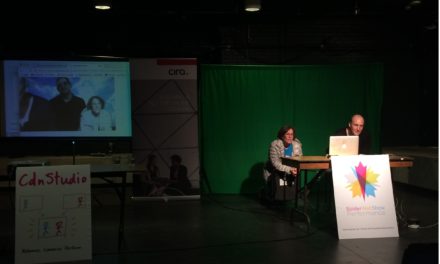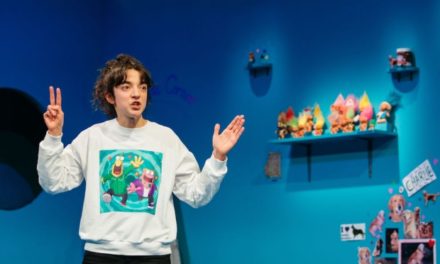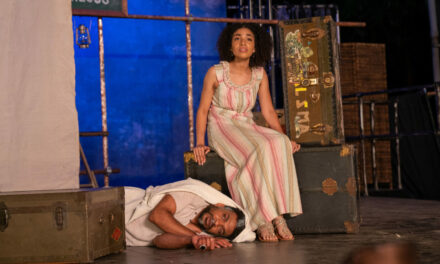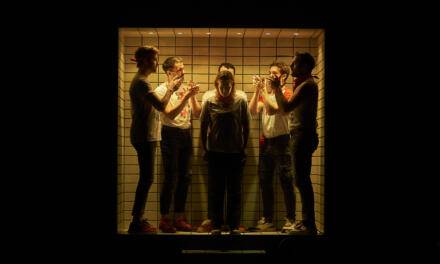The premiere of La realidad, the new play by Darío Facal and Pedro Cantalejo, was in March at the Corral de Comedias, Alcalá de Henares (Madrid), one of the oldest and most beautiful theaters in Spain. The show aims to give the audience the experience of how fake news is constructed today.
It is a surprising production that uses many performative techniques. It starts with people around a table, in what looks like a collaborative space, an expert panel meeting, or young university students who are working together on a project. There is also a large flat screen at the back of the stage and some plants. None of this would shock the audience; it all looks like everyday life.
What happens next? They start sharing information and providing evidence found online. They talk about globally-known entrepreneurs like Jeff Bezos the CEO of Amazon, and Elon Musk the CEO of Tesla. Most of the data they provide is commonly known and there are references to the International Space Station and other related topics. It all seems mundane.
However, the stories they tell gradually become surprising and strange. They say that these stories can be found in the “deep web”, where ninety percent or more of the Internet’s content is hidden from search engines. This dark side of the Internet supposedly doesn’t exist, but everyone has heard or read about it. The actors get audiences to believe these weird ideas and stories with their energy. They look and act like trustworthy people who could be your neighbors, your partners, or your friends. They are dressed in ordinary clothes, just like the audience. They use language in an ordinary way. Everything and everyone seems so normal that when they start telling lies, anyone thinks they are true.
In addition, they mix facts with lies. They support what they say with evidence that sounds true on the surface. It is a combination of real characters and true stories with fictional characters and unbelievable stories. The latter are contaminated with the reality of the former.

La realidad. Photo credit: David Palazón.
They also use humor and music to reduce the audience’s disbelief. They try to make people laugh with a story that Elon Musk is one of the lizards from V, the sci-fi TV series, to immediately telling us people believe that you can buy human flesh online. And, just in case anyone still does not believe it, they show the purchased meat that’s ready to be cooked. Is it human or animal? Who knows?
In the end, the audience understands how their habitual reality is constructed, no matter how strange it may be. They see the process by which fake news can end up being believed. It’s also an experience similar to attending a party because of the funny things that happened on stage.
La realidad is a play with a grand finale in which a painting made by a robot over the course of the performance is auctioned. The audience bids for it as if they were at Sotheby’s, especially after they have been told that art made by robots is an emerging art and the high prices these paintings are getting in the art market, but no real proof is shown.
This production will undoubtedly please younger audiences and will not disappoint the older ones, especially if the latter are open to the premise and allow themselves to understand how they are also fake news fodder.
This post was written by the author in their personal capacity.The opinions expressed in this article are the author’s own and do not reflect the view of The Theatre Times, their staff or collaborators.
This post was written by Antonio Hernández Nieto.
The views expressed here belong to the author and do not necessarily reflect our views and opinions.


















